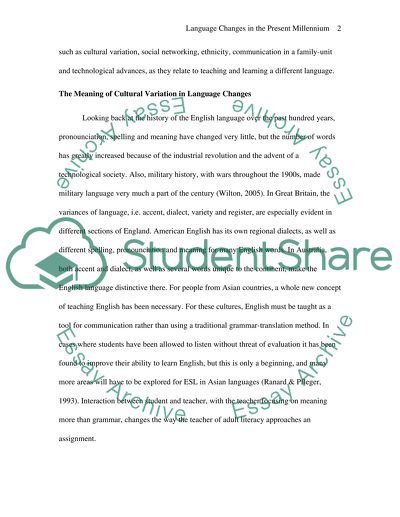Cite this document
(Language Changes in Teaching Adult Literacy Coursework Example | Topics and Well Written Essays - 1500 words, n.d.)
Language Changes in Teaching Adult Literacy Coursework Example | Topics and Well Written Essays - 1500 words. https://studentshare.org/education/1535951-factors-influencing-language-and-literacy-4-language-change
Language Changes in Teaching Adult Literacy Coursework Example | Topics and Well Written Essays - 1500 words. https://studentshare.org/education/1535951-factors-influencing-language-and-literacy-4-language-change
(Language Changes in Teaching Adult Literacy Coursework Example | Topics and Well Written Essays - 1500 Words)
Language Changes in Teaching Adult Literacy Coursework Example | Topics and Well Written Essays - 1500 Words. https://studentshare.org/education/1535951-factors-influencing-language-and-literacy-4-language-change.
Language Changes in Teaching Adult Literacy Coursework Example | Topics and Well Written Essays - 1500 Words. https://studentshare.org/education/1535951-factors-influencing-language-and-literacy-4-language-change.
“Language Changes in Teaching Adult Literacy Coursework Example | Topics and Well Written Essays - 1500 Words”. https://studentshare.org/education/1535951-factors-influencing-language-and-literacy-4-language-change.


